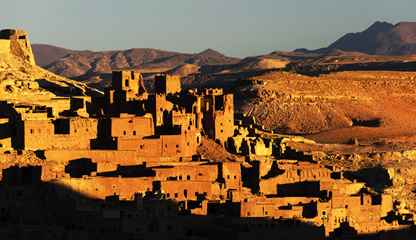When is the Cheapest Time to Fly to Casablanca?
July and August, particularly the latter, mark the peak in summer tourism for the city, so airfares will be high. Visiting in the spring or autumn offers you the best opportunity to pick up some great offers on cheap flights to Casablanca when the weather is warm, and the tourists are few. For avid hikers, spring is prime hiking time, and thankfully, airlines tend to have reduced rates on travel during March and April.
When is the Best Time to Book your Flight to Casablanca?
Book your flights to Casablanca around six weeks before departure in order to get the best deals and savings. When booked far enough in advance, you can find some excellent deals on peak-season return flights, so if you’re set on your travel dates, this option is worth exploring. Deals on last-minute flights will be hard to come by in the peak season, but you’ll have a better chance in February and March.
Flying to Casablanca Airport CMN
Also known as Mohammed V International Airport, Casablanca Airport (CMN) is Morocco’s largest and busiest airport and ranks as one of the top five busiest airports in Africa. Direct flights are limited, but some do depart from London Heathrow, London Gatwick and Manchester. Royal Air Maroc is the only airline offering these direct flights at the moment. However, indirect options are available from several, other airlines. British Airways, TAP Portugal Air, Alitalia, Lufthansa and KLM all offer service to Casablanca with at least one stopover somewhere in Europe. While an indirect route can mean significant savings, it can sometimes more than double your travel time in comparison to a direct service. The average travel time for direct Casablanca flights clocks in at around three hours and 20 minutes, while indirect services can last anywhere from five to ten hours.
On Arrival and Getting Around the Airport
Located 40 minutes from the city centre, this airport features three passenger terminals: Terminal 1, Terminal 2 and Terminal 3. Terminal 3, the smallest, is out of service and no longer used. Terminal 1 is currently closed for refurbishments, although check-in desks are still open. All departures – both domestic and international – leave from Terminal 2. This terminal also offers two lounges for passenger use in arrivals and departures as well as a selection of dining options. Currently, only documented passengers are allowed within the terminals for security reasons.
Getting to the City from Casablanca Airport CMN
Casablanca Airport (CMN) is served by taxis, trains and buses, all waiting to whisk you off to your destination. The TRAB train service is in the basement level of the Terminal 1 arrivals area with one train running per hour. The journey into the city takes 30 minutes, and tickets cost about 30 dirhams. The CMT bus service provides buses from the airport into the city centre; this takes around an hour. Alternatively, taxis are available on the ground floor outside arrivals 24/7 and can take you into the city or any of the surrounding locales. City centre drop off is likely to cost around 270 dirhams.
Why visit Casablanca?
One of Casablanca’s biggest attractions is the great Hassan II Mosque. One of the largest mosques in the world, it can fit up to 25,000 worshippers inside its walls at once. Its elaborate design and dramatic location set against the backdrop of tumultuous seas, draws in both tourists and pilgrims alike. Once inside, you can see the stunning jewel toned zellij walls and floors. Take a guided tour if you’d like to see all the different parts of the mosque.
Of course, wandering the city is a treat in and of itself. The Medina might not be as impressive as the ones in Fez or Marrakesh, but without a doubt, this is where you’ll feel the real buzz and beat of the city. Stroll through the maze of streets and take in the traditional trades and craftsmen. Then, if it gets too hot, just head down to the beach and take a quick dip in the sea to freshen up.
Don't Forget Before you Fly
For United Kingdom citizens, a visa is not required for tourism purposes or stays that are less than three months. You must have your passport stamped upon entry. To ensure a smooth departure, your passport should be in good condition lest you be refused entry. Your passport must also be valid for the duration of your stay. Morocco uses the Moroccan dirham as their currency. Exchange rates can be poor, and few bureaus de change carry dirhams in stock. It is better to take English bank notes with you and exchange them upon arrival.












